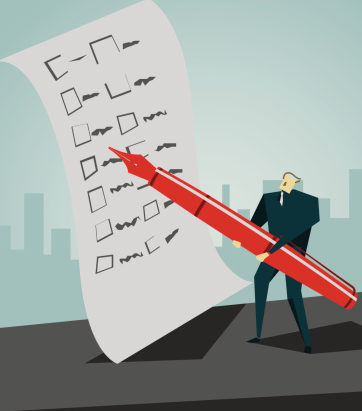You have /5 articles left.
Sign up for a free account or log in.

Getty Images
Proposed legislation in Florida would require public universities to survey students’ and faculty members’ political beliefs annually.
The bill, HB 839, passed a House panel last week, amid opposition from Democrats who expressed concern about how the survey data would be used. A similar bill has been proposed in the Florida Senate. Both chambers are controlled by Republicans, and Governor Ron DeSantis is a Republican.
The survey language, which is part of a broader set of proposed performance metrics, is short on details. There is no assurance of data anonymity or clarity on who will use the data, for what purpose.
The bill says only that the state university system’s Board of Governors will require public institutions to conduct an assessment of intellectual freedom and viewpoint diversity on campus. Results would be published annually, starting next year.
The board shall select or create an “objective, nonpartisan and statistically valid survey” that “considers the extent to which competing ideas and perspectives are presented and members of the university community feel free to express their beliefs and viewpoints on campus and in the classroom,” reads the bill.
Matthew Lata, professor of music at Florida State University and president of the campus’s National Education Association- and American Federation of Teachers-affiliated faculty union, spoke out against the bill during the debate in Tallahassee.
“Are faculty and students going to be coerced into filling out such a survey?” he asked. “If I refuse to do that, am I going to be punished? Coerced speech is a violation of the First Amendment. I shouldn’t forced to tell the state of Florida what I believe about certain political matters.”
Republican supporters of the bill say they worry about indoctrination of students by liberal professors. Cord Byrd, chair of the House Higher Education and Career Readiness committee, said students have told him they don’t feel comfortable sharing their political views in the classroom.
“They are real concerns,” Byrd said. “And I think it’s only getting worse.”
Republican legislators in a number of states routinely express concern about liberal bias on college campuses. But lawmakers who are skeptical of academe more typically target tenure or specific program areas.
Both Florida State University and the University of Florida declined comment on the bill.
One criticism expressed by Democrats last week in Tallahassee is that the survey seems to be targeting one set of beliefs, or a predetermined outcome. Indeed, numerous studies already demonstrate that professors are overwhelmingly liberal. So it’s unclear what new data the state-level survey would reveal. Other data suggest that college students who develop or continue to hold more conservative beliefs don’t suffer for them, socially or otherwise.
Samuel Abrams, a professor of political science at Sarah Lawrence College who has commented publicly that his own moderate-conservative political views make him the “Ted Cruz” of his overwhelmingly liberal campus, has researched both student and faculty politics.
Despite sometimes feeling like a target or outsider at his own institution, Abrams said Saturday that he strongly opposed a state-sanctioned attempt to impose political “litmus tests” on students or professors.
“It’s not a particularly Republican idea,” Abrams said of Florida’s survey proposal. “And it makes it harder to move the needle back to the center.”
Abrams continued, “I appreciate the incredible interest in having balance on a college or university campus -- there’s no doubt about that. But when we try to measure these things, they become litmus tests. And they can be used against certain people.”
Abrams also posed methodological questions about the survey, saying that “ideology and partisanship is not a clear-cut issue. Most people’s views are somewhere in the middle.” And just because a professor leans liberal or conservative doesn’t mean he or she can’t teach the opposite viewpoint effectively, he added.
A better approach to “bringing things back into balance” politically is to do so from within, with strong campus leadership and thoughtful programs, Abrams said.





